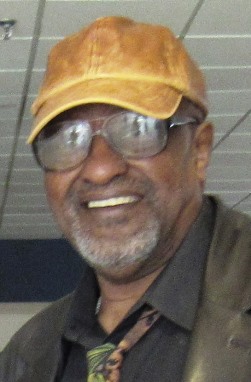
by Mary Rupert
Richard Mabion thinks the lesson to learn from the Flint, Mich., water problem is: “We need to deal with individual responsibility.”
“That is what I think is the biggest lesson that can be learned, not just about the water, but about all of our circumstances in life,” Mabion said, on the day that three government officials were charged in connection with the Flint, Mich., crisis, where lead was discovered in the water.
Mabion, who is on the board of directors of the Kansas Sierra Club and is the president of the Kansas City, Kan., Branch of the NAACP, also is the director of Building a Sustainable Earth Community.
He is working on a free community event, “Environmental Justice Challenges in My Backyard,” to be held from 1 p.m. to 4 p.m. Friday, April 22, at the South Kansas City, Kan., Public Library, 3104 Strong Ave., Kansas City, Kan. It will bring together people who look at environmental justice as a civil rights issue with people who focus on the environmental aspects.
Mabion said he’s not blaming the victims at all in the Flint case. The Environmental Protection Agency and the government will take care of investigating and dealing with individuals responsible for Flint’s situation, and will work on the quality of air and water. The NAACP looks at environmental justice a little differently, as a civil rights issue, he said.
“I just spoke last night at a neighborhood group at 10th and Quindaro,” Mabion said. “What I’m doing is going around, using what happened in Flint as a way to understand about our individual responsibility. That’s what we need to learn.”
Mabion said he asks people in the community if they lived in Flint, how many glasses of water would they have allowed their children to drink? People always respond none, he said.
“Everybody says that, but in Flint, those people did that for almost two years,” he said. “Somewhere along the line, we need to deal with individual responsibility.”
The same applies to other areas of life, he added. If there is a financial crisis, people need to be responsible rather than waiting for someone else to solve it, he said.
While he isn’t trying to blame anyone in this situation, he is using it as a teaching tool, he said.
Besides being more aware of their water, people should be aware of any problems with food recalls and restaurants that have reportedly served tainted food, he believes.
“Environmental literacy is what’s needed in this country, and it’s the only way we’re going to prevent the kinds of things that happened in Flint from happening here,” Mabion said.
To increase environmental literacy, Kansas City, Kan., youth currently are learning how to test the water, he said.
The Friends of the Kaw have received a grant from the EPA to teach students at Harmon High School and Wyandotte High School how to scientifically test water. The Wyandotte students have gone to Wyandotte County Lake to perform tests. The Harmon students have tested the water on a nearby creek.
The students are using test tubes, he said, and learning how to find out exactly what is in the water.
The students attended a recent NAACP meeting and taught NAACP members how to scientifically test their water, he said.
“Our responsibility is to educate our future generation,” Mabion said. That might prevent future situations similar to Flint from happening, he believes.
Details of the Friday, April 22, event at the South Library, “Environmental Justice Challenges in My Backyard,” a free community event in partnership with the NAACP and Climate and Energy Project.
• 1 p.m. – Informational booths, refreshments, meet and greet.
• 2 p.m. – Keynote presentation, Jacqueline Patterson, director of the NAACP Environmental and Climate Justice Program
• 2:45 p.m. – Questions and answers, moderated by Margaret May, executive director of the Ivanhoe Neighborhood Council and the chair of the National Environmental Justice Advisory Committee
• 3 p.m. – Panel moderated by Althea Moses, EPA Region 7’s environmental justice coordinator. Panelists include: health, Dr. Jennifer Lowry, Children’s Mercy Hospital; energy, Dorothy Barnett, Climate and Energy Project; and local engagement, Richard Mabion, KCK branch of the NAACP.
• 3:20 p.m. – Panel questions and answers, moderated by Althea Moses.
• 3:30 p.m. – Attendee brainstorm.
• 3:50 p.m. – Summary and next steps, moderated by Margaret May.
